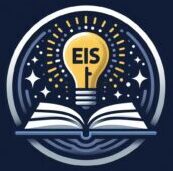5 Expert Tips on How to Prepare for a Teacher Interview
In the competitive landscape of education, securing a teaching position requires detailed preparation and a deep understanding of what it takes to stand out in a crowded field. This article will explore how to prepare for a teacher interview and provide invaluable insights that will help you master this vital part of your career journey.
The Importance of Preparing for a Teacher Interview
Preparing for a teaching interview is like laying the groundwork for success. It involves more than just presenting your qualifications and experience; it’s about conveying your enthusiasm for teaching and your fit for the particular school environment you wish to become a part of.
An Overview of Key Strategies and Common Questions
Successfully, how to prepare for a teacher interview involves a comprehensive approach that includes several strategies designed to leave a memorable impact. This article will guide you through conducting in-depth research on the school and creating an impactful resume.
In addition, we’ll discuss common interview questions for teachers such as teaching philosophy, problem-solving skills, and how they align with the school’s values. With a clear understanding of each aspect and refined skills, you’ll be prepared to approach any interview situation with poise and assurance.
Before attending a teacher interview, it’s essential to have a deep understanding of the school’s environment and the district you’re interested in joining. Familiarize yourself with its ethos and recognize the key individuals who play a significant role in developing its educational structure.
Table of Contents
Understanding the School’s Mission, Values, and Educational Approach
Every school has its unique culture and educational philosophy, shaped by its mission, values, and approach to teaching and learning. Take the time to familiarize yourself with these aspects to gauge whether they resonate with your own beliefs and teaching style. By demonstrating a genuine interest in the school’s ethos, you’ll convey your readiness to contribute positively to its community and uphold its principles.
Building Knowledge About the Superintendent and Administrators
In addition to understanding the broader school environment, it’s essential to identify key personnel who wield influence within the district. Research the superintendent, principals, and other administrators to gain insights into their leadership styles, priorities, and any recent initiatives they’ve spearheaded. Demonstrating awareness of the individuals shaping the educational landscape will showcase your commitment to becoming an integral part of the school community.
Furthermore, by exploring these aspects and equipping yourself with thorough knowledge of the school district, you will not only show your readiness for the teacher interview but also express your sincere interest in becoming an integral part of the educational institution.
How to Prepare for a Teacher Interview: Crafting a Winning Resume
Your resume acts as your first impression for potential employers, so it’s crucial to create an impactful document that showcases your qualifications, experience, and fit for the teaching role. This section will cover the key steps to customize your resume to stand out in a teacher interview.
Tailoring Your Resume to Shine in a Teacher Interview
Your resume should not merely be a list of past positions and credentials but a strategic tool tailored to the specific requirements of the teaching job you’re applying for. Start by carefully reviewing the job description and identifying the key skills, qualifications, and experiences sought by the employer. Then, customize your resume to highlight how your background aligns with these requirements, emphasizing relevant teaching experiences, certifications, and professional development activities.
Highlighting Relevant Experience
When crafting your resume, focus on showcasing your most relevant experiences and achievements in the field of education. Highlight any teaching positions held, including grade levels and subjects taught, as well as any special projects or initiatives you’ve spearheaded. Additonally, emphasize any awards, recognitions, or professional accomplishments that demonstrate your commitment to excellence in teaching.
Moreover, it may be beneficial to include a concise statement that describes your educational philosophy and teaching methods, offering a glimpse into your instructional beliefs and techniques.
Demonstrating Alignment with the School’s Goals and Vision
In addition to highlighting your qualifications and experiences, your resume should reflect your alignment with the school’s goals, mission, and educational vision. Tailor your language and accomplishments to demonstrate how you can contribute to the school’s success and further its educational objectives. By showcasing your understanding of and enthusiasm for the school’s mission, you’ll position yourself as a candidate who is not only qualified but also genuinely invested in the school’s success.
Crafting a winning resume requires careful attention to detail, strategic customization, and a clear alignment with the requirements and values of the teaching position and school district. By tailoring your resume to shine in a teacher interview, you’ll increase your chances of standing out as a top candidate worthy of consideration.
Preparing for Teacher Interview Questions
Entering a teacher interview can be nerve-wracking, but thorough preparation can significantly boost your confidence and performance. This section will explore common interview questions for teachers and offer insights on how to address them effectively.

A. Understanding Common Interview Questions for Teachers
Common interview questions for teachers typically include a range of questions designed to assess your qualifications, experience, teaching philosophy, and fit for the school’s culture. By familiarizing yourself with common interview questions in advance, you can anticipate what to expect and prepare thoughtful responses that highlight your strengths and suitability for the position.
B. Common Interview Questions for Teachers and How to Approach Them
- Why Do You Want to Work for This School District?
This question aims to gauge your motivation for applying to the specific school district. When responding, emphasize your alignment with the district’s values, mission, and educational priorities. Highlight any unique aspects of the district that attract you and demonstrate your enthusiasm for becoming a part of its educational community. - What Can You Bring to Our School Community?
Here, the interviewer seeks to understand how you can contribute positively to the school’s environment and culture. Focus on your strengths, experiences, and skills that align with the school’s needs and objectives. Provide specific examples of how you’ve made a difference in previous teaching roles and how you envision doing the same in this new context. - How Do You Handle Classroom Challenges?
This question assesses your ability to manage classroom dynamics and overcome obstacles effectively. Share examples of challenging situations you’ve encountered in the past and describe the strategies you employed to address them. Emphasize your adaptability, problem-solving skills, and commitment to fostering a positive learning environment for all students. - Discussing Your Specialization or Niche in Education
If you have a specialized area of expertise or a particular teaching niche, be prepared to discuss it in detail. Highlight how your specialization enhances your teaching practice and benefits students. Articulate your passion for your chosen field and your willingness to share your knowledge and expertise with colleagues and students alike. - Problem-Solving Scenarios: Thinking on Your Feet
Many teacher interviews include scenario-based questions to assess your ability to think critically and respond effectively in real-life teaching situations. Practice scenarios that require quick thinking and creative problem-solving, demonstrating your ability to remain calm under pressure and make sound decisions in challenging circumstances.
By familiarizing yourself with these common interview questions for teachers and honing your responses, you’ll be better prepared to showcase your qualifications, experience, and fit for the teaching position and school community. Remember to approach each question thoughtfully and authentically, drawing on your unique strengths and experiences to make a compelling impression on the interview panel.
How to Prepare for a Teacher Interview: Demonstrate Professionalism
In addition to showcasing your qualifications and expertise, demonstrating professionalism throughout the teacher interview process is essential for making a positive impression on potential employers. This section will explore key aspects of professionalism, including punctuality, appearance, and demeanor, that can significantly impact your candidacy.
A. The Importance of Being Early for Your Teacher Interview
Arriving punctually for your teacher interview demonstrates respect for the interviewer’s time and signals your commitment to the position. Aim to arrive at least 30 minutes early to allow for unforeseen delays and to familiarize yourself with the interview location. Arriving early also provides an opportunity to compose yourself and review your preparation, helping you feel more confident and composed when the interview begins.

B. Dressing for Success: Tips for Professional Attire and Appearance
Your appearance plays a significant role in shaping first impressions during a teacher interview. Dressing professionally conveys your seriousness and professionalism, setting a positive tone for the interview. Opt for conservative attire, such as a sport jacket, suit or pantsuit, in neutral colors like black, gray, or navy blue. Ensure your clothing is clean, well-fitted but not tight, and free of wrinkles or stains, projecting an image of professionalism and attention to detail.

- Choosing Neutral Colors and Ensuring Neatness:
Neutral colors are universally accepted in professional settings and convey a sense of professionalism and reliability. Avoid loud or flashy colors and opt for muted tones that are appropriate for a professional environment. Additionally, ensure your clothing is clean, neatly pressed, and free of wrinkles to present a polished appearance. - Avoiding Inappropriate Attire to Make a Positive First Impression:
While it’s essential to dress professionally for a teacher interview, it’s equally crucial to avoid attire that may detract from your professionalism or distract from your qualifications. Avoid clothing that is too tight, revealing, or casual, as well as items with controversial slogans or graphics. Opt for conservative and modest attire that allows you to focus on showcasing your skills and expertise without distraction. - The Importance of Appearance in a Teacher’s Interview: Ensuring a neat and well-groomed appearance, including well-kept hair and clean, polished shoes, is paramount when preparing for a teaching interview. Similarly, clean and polished shoes indicate that you take pride in your appearance and are attentive to even the smallest details.
- Etiqette in a Teacher Interview: In addition to your physical appearance, it’s essential to be mindful of your behavior and etiquette during the interview. One crucial aspect of this is ensuring that your cell phone is turned off or set to silent mode before the interview begins. Constantly checking or answering your phone during the interview can be disruptive and disrespectful to the interviewer, detracting from the focus and flow of the conversation. By turning off your cell phone, you demonstrate your respect for the interviewer’s time and attention, as well as your commitment to giving your full concentration to the interview.
By prioritizing punctuality and presenting yourself professionally in terms of attire and appearance, you’ll convey a strong sense of professionalism and readiness for the teaching role. Remember that your demeanor and conduct throughout the interview also contribute to your overall impression, so approach the process with confidence, enthusiasm, and a positive attitude.
How do you interact with parents as a teacher?

Building positive relationships with parents is essential for student success. During a teacher interview, discuss your approach to parent communication and involvement, emphasizing regular communication channels such as email, phone calls, and parent-teacher conferences. Highlight your efforts to keep parents informed about their child’s progress, address any concerns or questions they may have, and collaborate with them to support their child’s learning and development.
How would you handle a student who is struggling with coursework?

When addressing this question, emphasize your commitment to differentiated instruction and individualized support. Discuss your approach to identifying student needs, providing targeted interventions, and offering additional resources or support services as needed. Emphasize your willingness to collaborate with colleagues, administrators, and parents to develop strategies for addressing student challenges and promoting academic success.
What should I know about lesson planning when preparing for a teaching interview?

Lesson planning is a critical aspect of effective teaching. During a teacher interview, be prepared to discuss your approach to lesson planning, including how you align lessons with curriculum standards and learning objectives, differentiate instruction to meet diverse student needs, incorporate active learning strategies, and assess student progress.
What should I emphasize when discussing my ability to collaborate and work in a team?

Highlight your experience working collaboratively with colleagues, administrators, and parents to support student success. Discuss your communication skills, ability to contribute to team goals, and willingness to share ideas and resources.
Is it important to discuss my proficiency with educational technology during a teacher interview?

Yes, demonstrating proficiency with educational technology is increasingly important in today’s classroom. Discuss how you integrate technology into your teaching practice to enhance student engagement, facilitate personalized learning, and promote digital literacy skills.
How can I demonstrate my ability to work with diverse student populations during a teacher interview?

Showcase your experience and strategies for supporting students with varying abilities, backgrounds, and learning styles. Discuss specific examples of how you differentiate instruction, provide accommodations, and create an inclusive classroom environment that celebrates diversity and promotes equity.
What questions should I ask during a teacher interview?
Can you tell me about the school culture and student body? This shows you’re interested in the specific environment.
What are the biggest challenges and rewards facing teachers in this position? This demonstrates your desire to understand the realities of the job.
Are there any professional development opportunities available for this position? This highlights your commitment to continuous learning.
What curriculum materials are used to teach the standards? This demonstrates your interest in the specific content you’ll be teaching.
What technology resources are available to teachers in the classroom? This is especially important if you plan to integrate technology into your lessons.
How does the school support teachers who are new to a school? This shows that you’re interested in the school’s support system for new teachers, which is a very positive sign.
How are parents involved in the school community? This highlights your interest in building strong relationships with families.
What are the expectations for teachers’ involvement in extracurricular activities? This shows your willingness to contribute beyond the classroom.
Conclusion of How to Prepare for a Teacher Interview
Preparing for a teacher interview requires diligence, preparation, and a commitment to presenting yourself in the best possible light. Throughout this article, we’ve explored key strategies and tips for mastering the teacher interview process, from researching the school environment to crafting a winning resume, preparing for common interview questions, and demonstrating professionalism.
As you embark on your journey to secure a teaching position, remember the importance of thorough preparation and thoughtful reflection on your qualifications, experiences, and aspirations as an educator. By taking the time to understand the school’s mission and values, tailoring your resume to highlight your strengths, practicing responses to common interview questions, and presenting yourself professionally, you’ll increase your chances of success in the competitive job market.
In closing, I encourage you to approach the teacher interview process with confidence, authenticity, and a genuine passion for education. Each interaction presents an opportunity to showcase your unique abilities and contributions as a teacher, so embrace the opportunity to share your story and make a meaningful impact on the interview panel. With dedication, preparation, and a positive mindset, you’ll be well-equipped to navigate the teacher interview process and embark on the next chapter of your teaching career. Best of luck!
Thank you for reading this article. I hope this content on preparing for a teaching interview has been informative and has answered many of your questions. Should you have any comments, please don’t hesitate to post them below or reach out to me by visiting my contact page.
If you’re interested in trending products, consider visiting this website for detailed product reviews.
Kelli McCain, PhD


